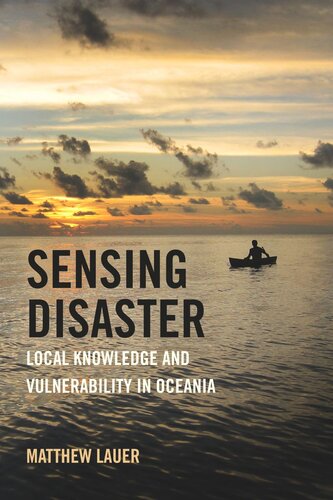

Most ebook files are in PDF format, so you can easily read them using various software such as Foxit Reader or directly on the Google Chrome browser.
Some ebook files are released by publishers in other formats such as .awz, .mobi, .epub, .fb2, etc. You may need to install specific software to read these formats on mobile/PC, such as Calibre.
Please read the tutorial at this link: https://ebookbell.com/faq
We offer FREE conversion to the popular formats you request; however, this may take some time. Therefore, right after payment, please email us, and we will try to provide the service as quickly as possible.
For some exceptional file formats or broken links (if any), please refrain from opening any disputes. Instead, email us first, and we will try to assist within a maximum of 6 hours.
EbookBell Team

0.0
0 reviewsIn 2007, a tsunami slammed a small island in the western Solomon Islands, wreaking havoc on its coastal communities and ecosystems. Drawing on over ten years of ethnographic and environmental science research, Matthew Lauer provides an intimate account of this catastrophic event that explores how a century of colonization, Christianity, and increasing entanglement with capitalism prefigured the local response and the tumultuous recovery process.
Despite near total destruction of several villages, few people lost their lives, as nearly everyone fled to high ground before the tsunami struck. To understand their astonishing, lifesaving response, Lauer argues that we need to rethink the popular portrayals of indigenous ecological knowledge that inform environmental research and contemporary disaster mitigation strategies so as to avoid displacing those aspects of indigenous knowing and being that are often overlooked. In an increasingly disaster-prone era of ecological crises, this important study challenges readers to expand their thinking about the causes and consequences of calamities, the effects of disaster relief and recovery efforts, and the nature of local knowledge.